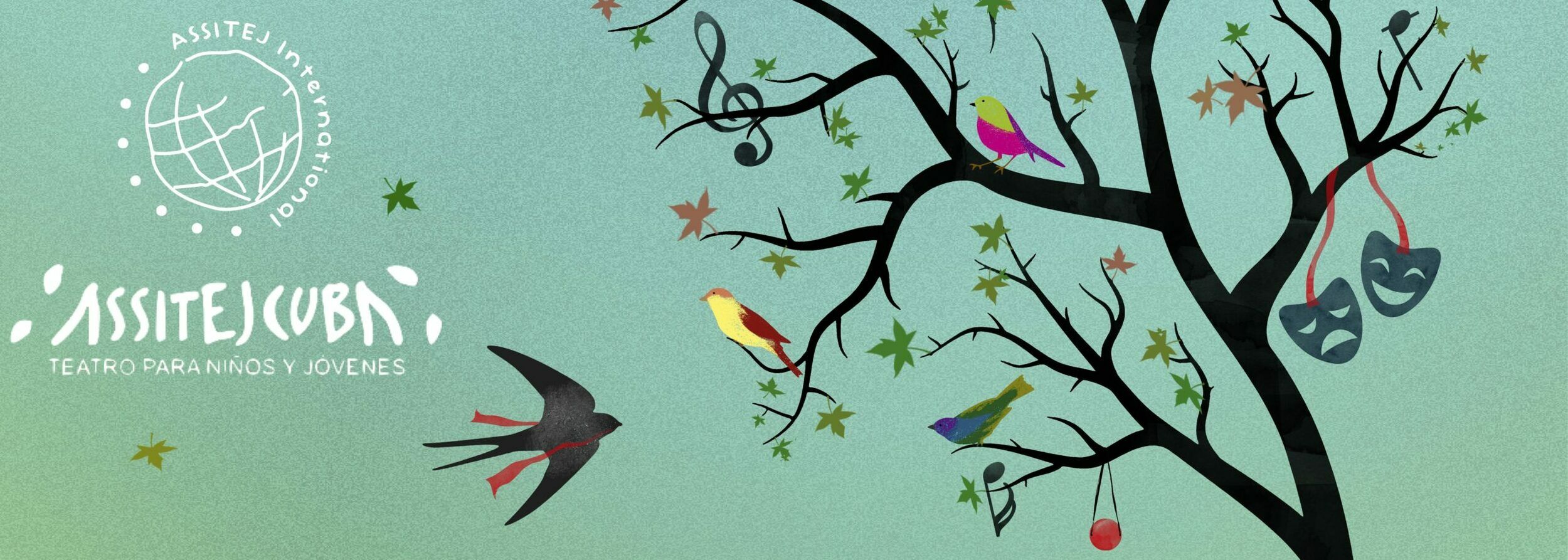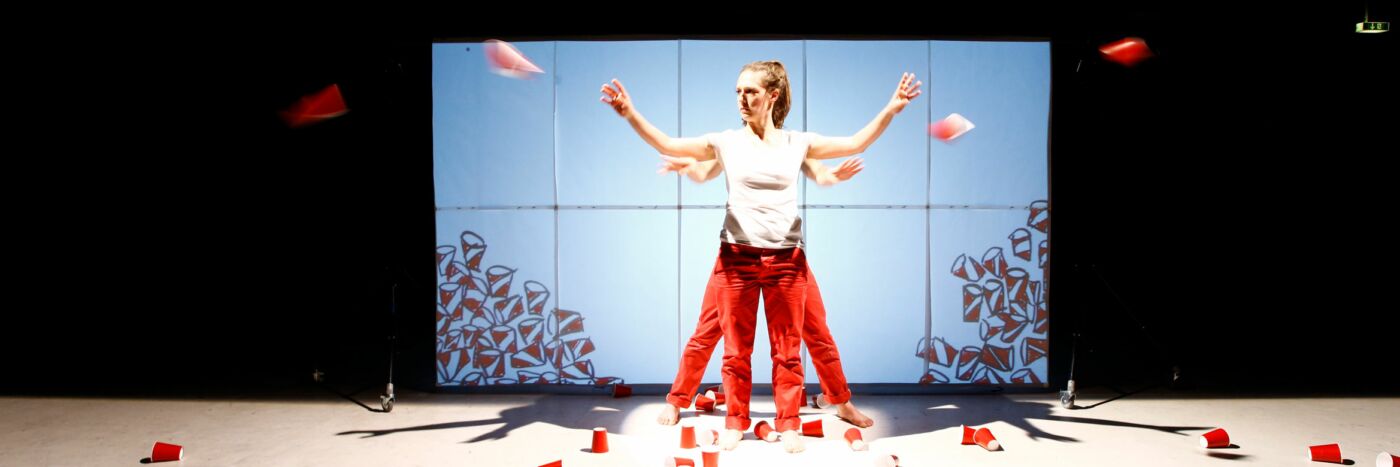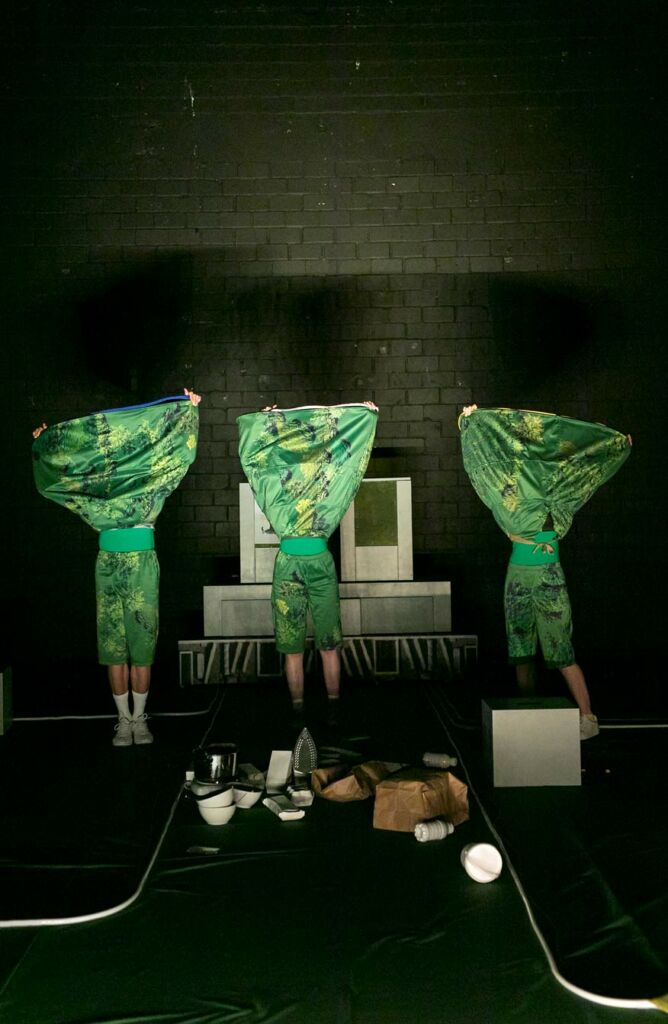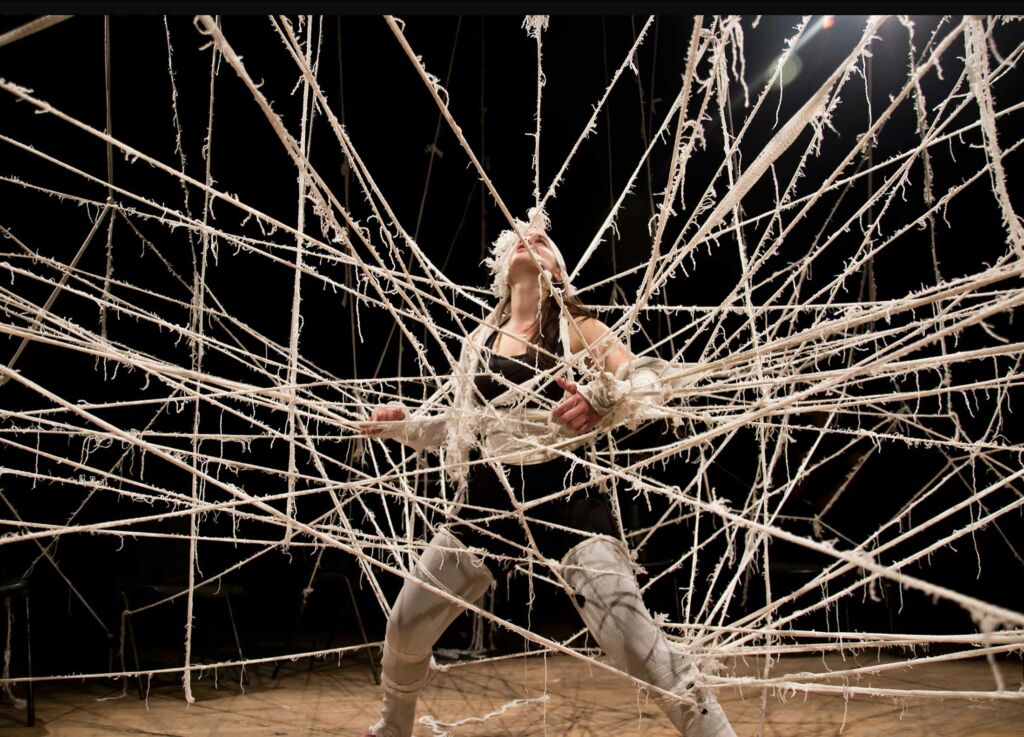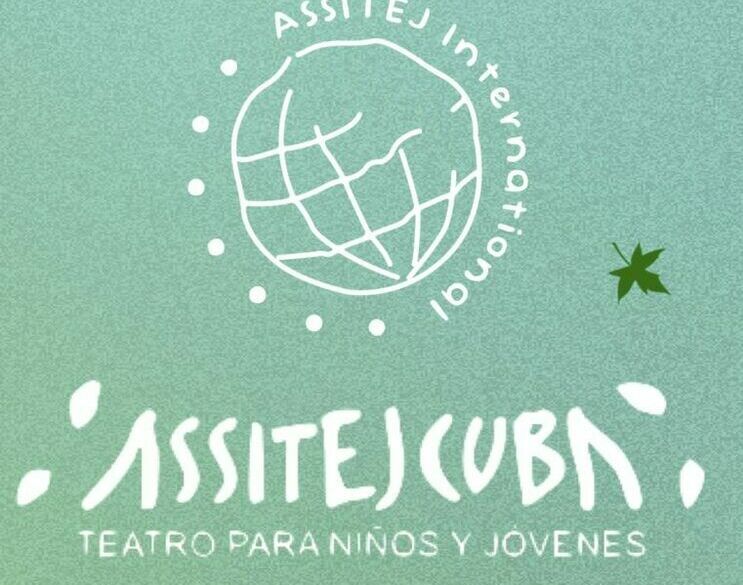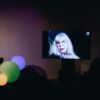By Julia Dina Heße, dramaturg/director/researcher
“At its core, the idea of sustainable development is a cultural project.”[1]
Sustainability understood as a „cultural process“ means that sustainable acting is not a single project, not a topic that one dedicates oneself to in one piece or one season and then “checks it off”. Taking the role as a change agent for a sustainable society, theatre can provide the playful and artistic linking of knowledge, feeling and action.
An increasing number of TYA performances in Germany choose ecological issues or the Sustainable Development Goals as their topic, just to name three examples „Trashedy“ (2011) by performing:group, „Fish Forward“ (2022) by Junges Staatstheater Mainz and „Himmel, Erde, Luft und Meer“ (2021) by Grips Theater Berlin. Also many projects especially with teenagers and young adults deal with movements like Fridays for Future or resistance, rebellion or the imagination of future utopias like „We for Future“ (2020) by Theater an der Parkaue Berlin or „Teenage Widerstand“ (2019) by Theater der Jungen Welt Leipzig.
Many performances have in common their searching gesture or spirit and the questioning of the growth ideology of faster, bigger, further. In all pieces, “business as usual” is not an option, and ecological sustainability is understood as a prerequisite for the necessary change. It cannot be separated from the crucial question: What kind of world do we want to live in in the future?
“The task of theater can be to invent stories in which society, production relations, and the use of resources are questioned and thought about differently. In this case, theater would not be about developing a play about Plan B, but rather about bringing many different stories of counter-movements to the stage. […] For makers and writers, this can also mean coming to a fundamental understanding that stories in theater don’t have to know better in the end.“[2]
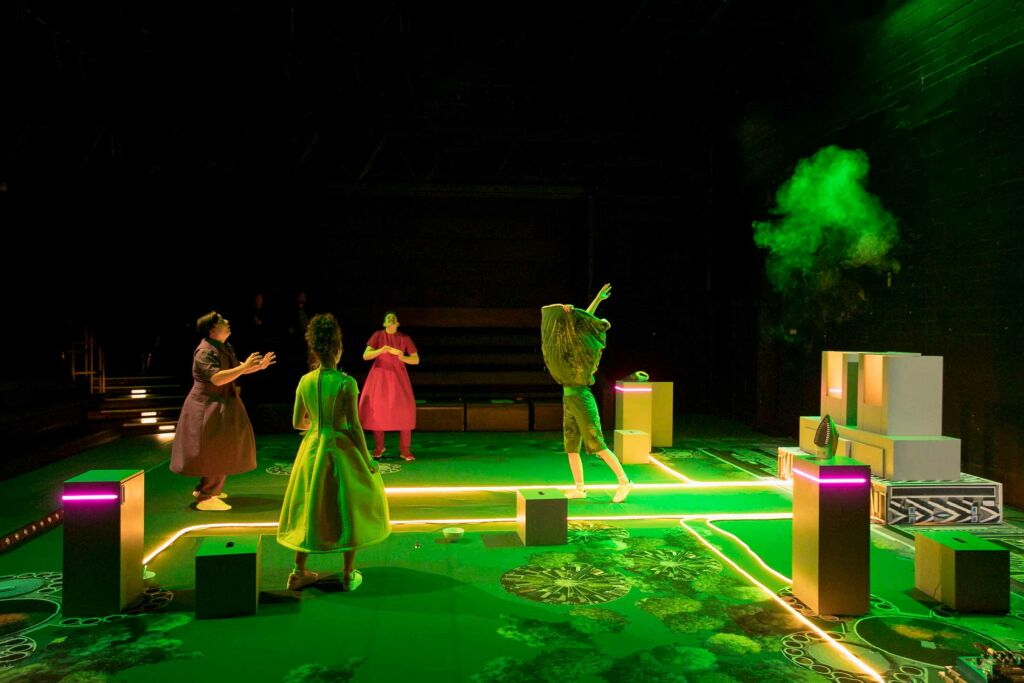
The plays, which are thus oriented toward sustainability or future viability, focus on other values and new ways of living together in the possible scenarios of desirable worlds. At the core of this is the question of solidarity, followed by the question of whose story is told on stage and what narratives and representations there might be in the future, if the non-human or more-than-human perspective can also be imagined for the stage, as is already being done in Switzerland, for example, by Shanjulab with productions such as „Perspectives / Un ensemble animale.“
The question of a different life in a different reality on stage leads to the question: how do we want to work, how do we want to produce for and behind the stage?
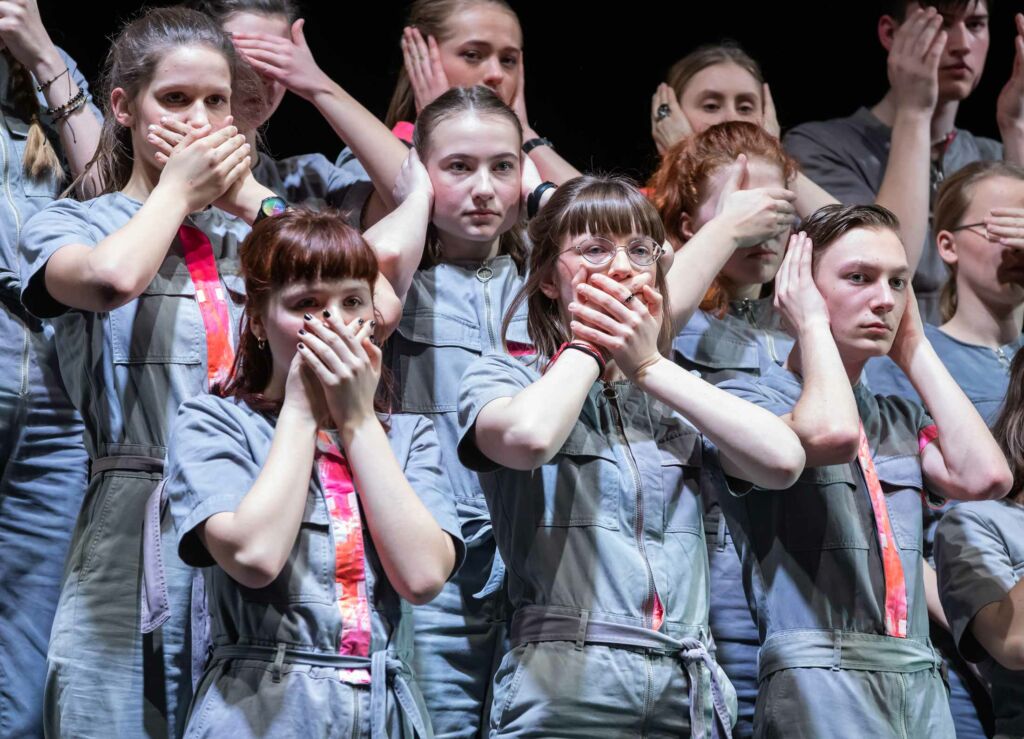
More and more artists want to adapt their production habits to the demands in their pieces and their audience and to work in harmony with these ideas. Thus, sustainability not only changes content and narrative, but also the esthetics of the work on stage, as can be seen, for example, in the work of eco-scenographer Tanja Beer based in Australia.
Institutions such as the Federal Cultural Foundation in Germany, which has drawn up a CO2 balance with 11 cultural institutions as a pilot project, and the recently founded Action Network Sustainability, which as a platform generates, collects, links and disseminates ecological knowledge in collaboration with experts from business, transformation research and culture, are striving to find answers to the question of sustainable production both backstage and in the entire theater building and all its departments.
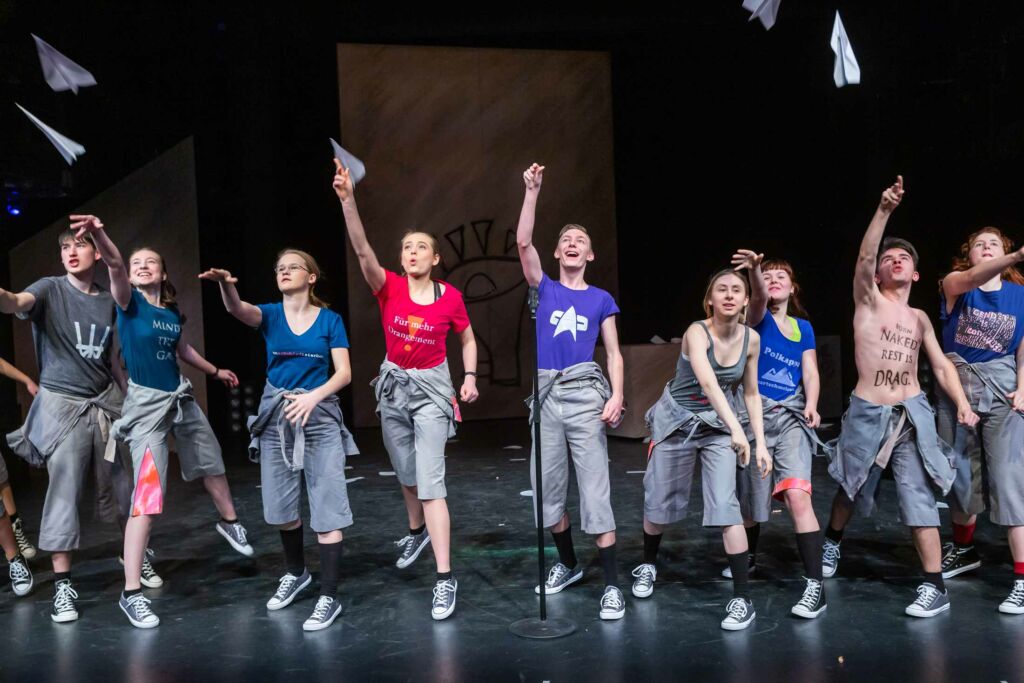
Whether on or off stage, theater can contribute a great deal to a change in social values in the sense of sustainable development, and for the most part it is ready for this or already on the way. What has been missing so far, however, are corresponding measures and support from cultural policy, which formulates expectations but has so far done too little to enable a different kind of production on and around the stage. A production that also refuses the capitalist logic, but instead relies on reduction and longterm processes for which there is currently no funding and little understanding.
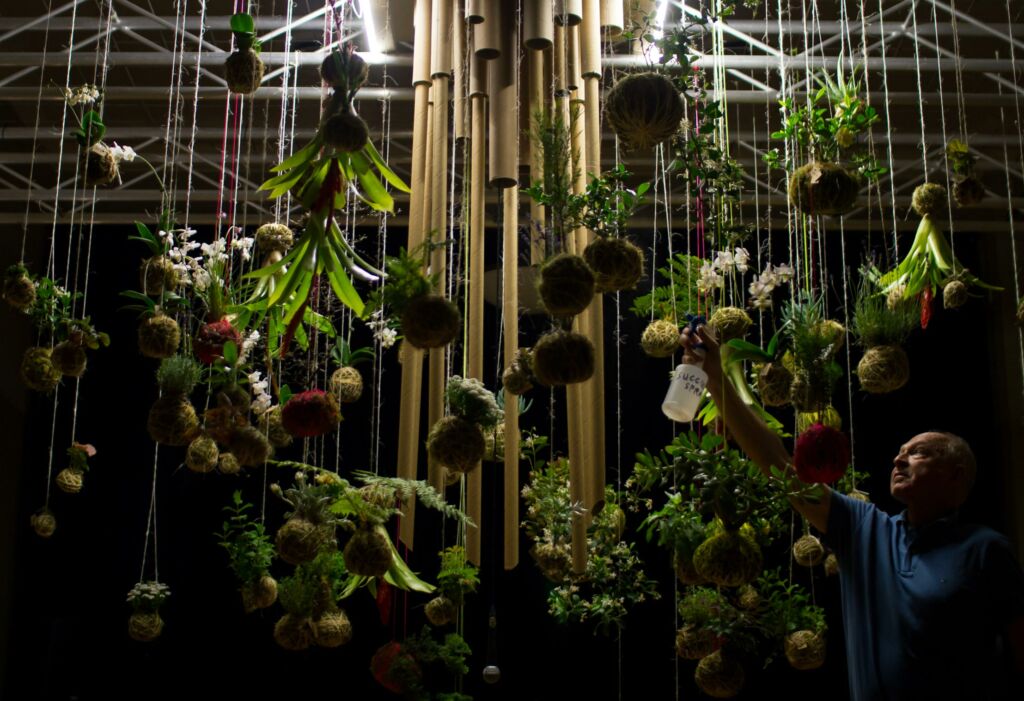
Julia Dina Heße is vice-president of Assitej Germany and EC member. In her PhD research she is concerned with the interactions between TYA and the content and aspirations of sustainable development.
[1] Schneidewind, Uwe: Die Große Transformation, Frankfurt a.M. 2018, pp. 21 and 23
[2] Hoch, Nora: sie werden geschrieben haben. In: Fischer-Fels/Hess/Adler (Hg.): Ab morgen…! Berlin 2016, p. 39

